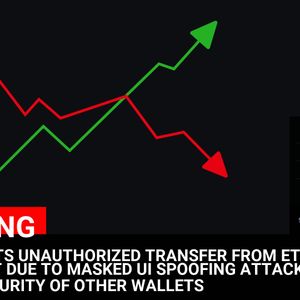In a significant move highlighting the growing importance of cryptocurrency regulation and security, the Italian central bank and securities regulator recently convened with key crypto service providers. This crucial meeting, held during the latest Assiom Forex Congress, underscores the intensifying focus on navigating the complex landscape of crypto assets, digital finance, and the ever-present threat of cybersecurity risks. Let’s dive into what this means for the future of crypto in Italy and beyond. Why is the Italian Central Bank Addressing Crypto Regulations Now? The initiative taken by the Italian central bank is not happening in isolation. Globally, regulatory bodies are grappling with how to effectively oversee the burgeoning crypto industry. The meeting, as reported by Cointelegraph, was specifically aimed at addressing the discrepancies in crypto regulations between major economic blocs like the United States and the European Union. Fabio Panetta, the governor of the Italian central bank, emphasized the necessity of these discussions to foster a more harmonized regulatory environment. But why is this harmonization so vital? Global Nature of Crypto: Cryptocurrencies operate without borders. Regulatory gaps between regions can create loopholes, potentially undermining the effectiveness of any single nation’s regulations. Investor Protection: Divergent rules can confuse investors and potentially expose them to varying levels of risk depending on their jurisdiction. A unified approach can lead to stronger, more consistent investor protection. Market Stability: Inconsistencies in regulations can lead to market fragmentation and instability. Harmonization aims to create a more level playing field and contribute to a more stable global crypto market. Combating Illicit Activities: A fragmented regulatory landscape can be exploited for illicit activities like money laundering and terrorist financing. International cooperation and alignment in regulations are crucial to combat these risks effectively. What are the Key Cybersecurity Risks Discussed with Crypto Service Providers? Cybersecurity is a paramount concern in the digital asset space. Crypto service providers , who manage and facilitate transactions in cryptocurrencies, are prime targets for cyberattacks. The meeting with the Italian central bank likely delved into a range of cybersecurity vulnerabilities and preventative measures. What are some of the specific risks they might have discussed? Cybersecurity Risk Description Potential Impact Wallet Hacking Unauthorized access to cryptocurrency wallets holding user funds. Direct financial loss for users; reputational damage for service providers. Exchange Hacks Breaches of crypto exchange platforms leading to theft of cryptocurrencies and sensitive user data. Massive financial losses; erosion of trust in the crypto market; regulatory scrutiny. Phishing Attacks Deceptive tactics to trick users into revealing private keys or login credentials. Individual financial losses; compromised accounts. 51% Attacks Exploiting vulnerabilities in blockchain consensus mechanisms to manipulate transaction records. Double-spending of cryptocurrencies; undermining the integrity of the blockchain. Smart Contract Vulnerabilities Flaws in the code of smart contracts that can be exploited to drain funds or manipulate contract execution. Financial losses for users and projects utilizing vulnerable smart contracts. Addressing these cybersecurity risks requires a multi-faceted approach involving technological safeguards, robust security protocols, user education, and proactive regulatory oversight. The Italian central bank’s engagement with crypto service providers signals a commitment to fostering a more secure environment for digital finance . How Does Digital Finance Fit into Italy’s Regulatory Agenda? The discussion wasn’t solely about cryptocurrencies but also encompassed the broader realm of digital finance . This suggests Italy is taking a holistic view of the evolving financial landscape. Digital finance encompasses a wide range of technological innovations in the financial sector, including but not limited to: Cryptocurrencies and Blockchain Technology: As discussed, these are central to the current wave of digital finance. Central Bank Digital Currencies (CBDCs): Many central banks, including the European Central Bank (ECB), are exploring the potential of issuing digital versions of fiat currencies. Neobanks and Fintech Platforms: These innovative financial institutions leverage technology to offer streamlined and often more accessible financial services. Decentralized Finance (DeFi): A burgeoning ecosystem of financial applications built on blockchain technology, aiming to provide traditional financial services in a decentralized and permissionless manner. Italy’s focus on digital finance demonstrates a forward-thinking approach to adapting its financial infrastructure to the realities of the 21st century. By engaging with crypto service providers and addressing crypto regulations and cybersecurity risks , the Italian central bank is actively shaping the future of finance within its borders and contributing to the global dialogue on these critical issues. What are the Potential Benefits of Stronger Crypto Regulations in Italy? While some in the crypto space may view regulations with skepticism, well-designed crypto regulations can bring significant benefits. For Italy, these could include: Increased Investor Confidence: Clear and consistent rules can make the crypto market more attractive to both retail and institutional investors, knowing their investments are operating within a regulated framework. Attracting Innovation: A predictable regulatory environment can encourage legitimate crypto businesses to establish themselves in Italy, fostering innovation and economic growth. Consumer Protection: Regulations can mandate consumer protection measures, safeguarding users from fraud, scams, and unfair practices within the crypto ecosystem. Tax Revenue Generation: A regulated crypto market can provide a clearer framework for taxation, potentially generating revenue for the Italian government. Financial Stability: By mitigating risks associated with illicit activities and market manipulation, regulations can contribute to the overall stability of the financial system. What’s Next for Crypto Regulations in Italy and the EU? The meeting between the Italian central bank and crypto service providers is just one step in an ongoing process. The EU is actively working on comprehensive crypto regulations through initiatives like the Markets in Crypto-Assets (MiCA) framework. MiCA aims to create a unified legal framework for crypto assets across the EU member states. Italy’s proactive engagement suggests it is keen to be at the forefront of implementing and shaping these regulations. The discussions held at the Assiom Forex Congress signal a pivotal moment for the crypto industry in Italy. By prioritizing security and seeking to bridge the regulatory gap with the US, the Italian central bank is taking a responsible and proactive approach to integrating digital finance into its economic framework. The focus on cybersecurity risks and crypto regulations demonstrates a commitment to fostering a safe, innovative, and sustainable crypto ecosystem. As the global regulatory landscape continues to evolve, Italy’s actions will be closely watched by the crypto community and regulatory bodies worldwide. To learn more about the latest crypto market trends, explore our article on key developments shaping Bitcoin price action.



















